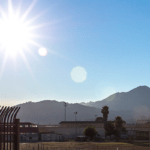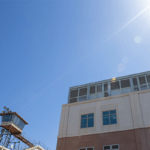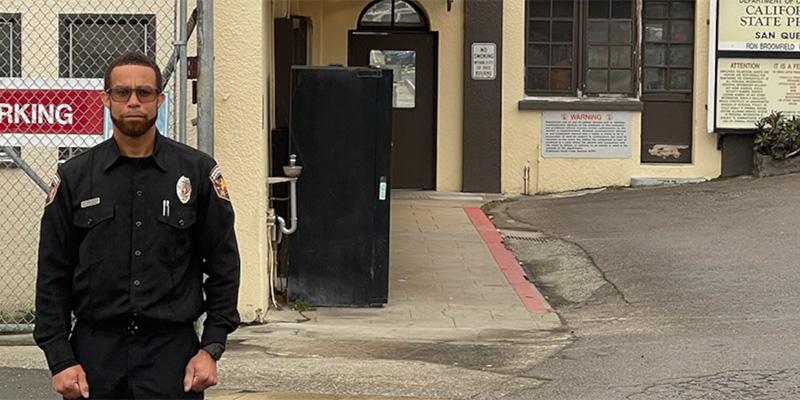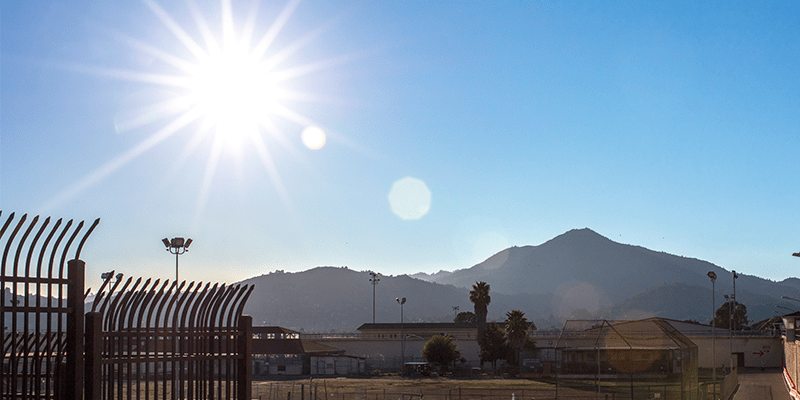For five years, I got up at 2 every morning and labored in the San Quentin State Prison kitchen, stirring kettles, scraping grills and scrubbing countertops and floors — covering myself in kitchen slime — just to get a five-minute shower.
I learned to keep a job if I wanted a daily shower. But hundreds of prisoners who live near me are unable to shower daily, despite the fact that outbreaks of diseases such as COVID-19 and norovirus and infestations of bedbugs and scabies are common.
The use of water as a weapon over prisoners by the California Department of Corrections and Rehabilitation violates basic human decency and endangers health — especially during a deadly pandemic.
The department already conserves with toilets that flush only twice every hour; water fountains are turned off and water bottles are outlawed. Our water automatically cuts off while we shave and brush our teeth. Sinks in our cells are too small and impractical for cleaning our whole bodies. Prison laundry services also are limited.
Prisoners should not be forced to work in order to get a shower. The California task force to study reparations proposals for African Americans recommends that involuntary servitude be abolished in California prisons. Its report, released in June, recommends repealing Penal Code Section 2700, which “shall require of every able-bodied prisoner imprisoned in any state prison as many hours of faithful labor in each day and every day during his or her term of imprisonment as shall be prescribed by the rules and regulations of the director of Corrections.”
It also recommends paying any person incarcerated in a California prison or jail a fair market rate for their labor. Prisoners in California are paid as little as eight cents an hour for their work. Assembly Constitutional Amendment 3 would have changed that, but it failed in the state Senate last week. State Sen. Sydney Kamlager, the amendment’s author, vowed to bring it back for reconsideration this week in an effort to place it on the November statewide ballot.
Many of us have wondered whether it would affect what little access we have to water for personal cleanliness in our overcrowded prisons.
Prisoners who don’t have jobs — including those pursuing GEDs or college degrees — are allowed a five-minute shower on Tuesdays, Thursdays and Saturdays. To shower every day, you have to work to help maintain the prison or its industries.
Yet every day, most prisoners run up and down basketball courts, jog around the track, slide into home plate, or participate in other activities in the prison yard. Hundreds of men, soaked in sweat, return to their cramped cells and cannot shower. The San Quentin cells are reminiscent of slave quarters in the bowels of a ship. As of June 22, California’s prison population was 97,201 — more prisoners by a third than the 35 state prisons were designed to accommodate. California needs to make every effort to reduce the population of its overcrowded prisons.
We hear the jangling of keys as officers lock the doors of our double-occupied cells. Once inside, we sit amid the stench of musty flesh, athlete’s foot and moldy laundry. We breathe in stale air stinking of dirty mops.
If we shower or even “bird bath” without permission, we can lose privileges, see our prison stay extended or have parole denied. These inhumane and manipulative tactics parallel those used in the cotton fields of Southern plantations during slavery.
California is currently in a severe drought, but rather than prevent nonworkers from showering, the department should fix the broken water mains throughout the prisons, the hundreds of faucets leaking inside of the cells and the showers that drip throughout the night.
Labor exploitation in California prisons will be exacerbated by drought conditions unless the department is forced to stop withholding daily showers from prisoners in an effort to increase their labor. The Department of Corrections and Rehabilitation should allow every prisoner a five-minute shower every day, regardless of whether they work, to prevent the spread of disease in overcrowded facilities.
Attribution: This article was first printed in Cal Matters June 28, 2022












